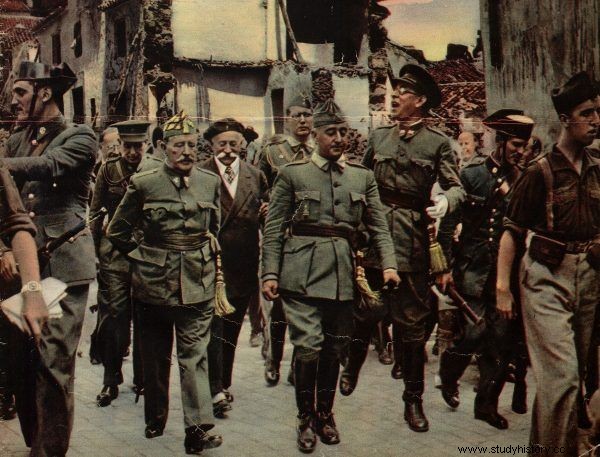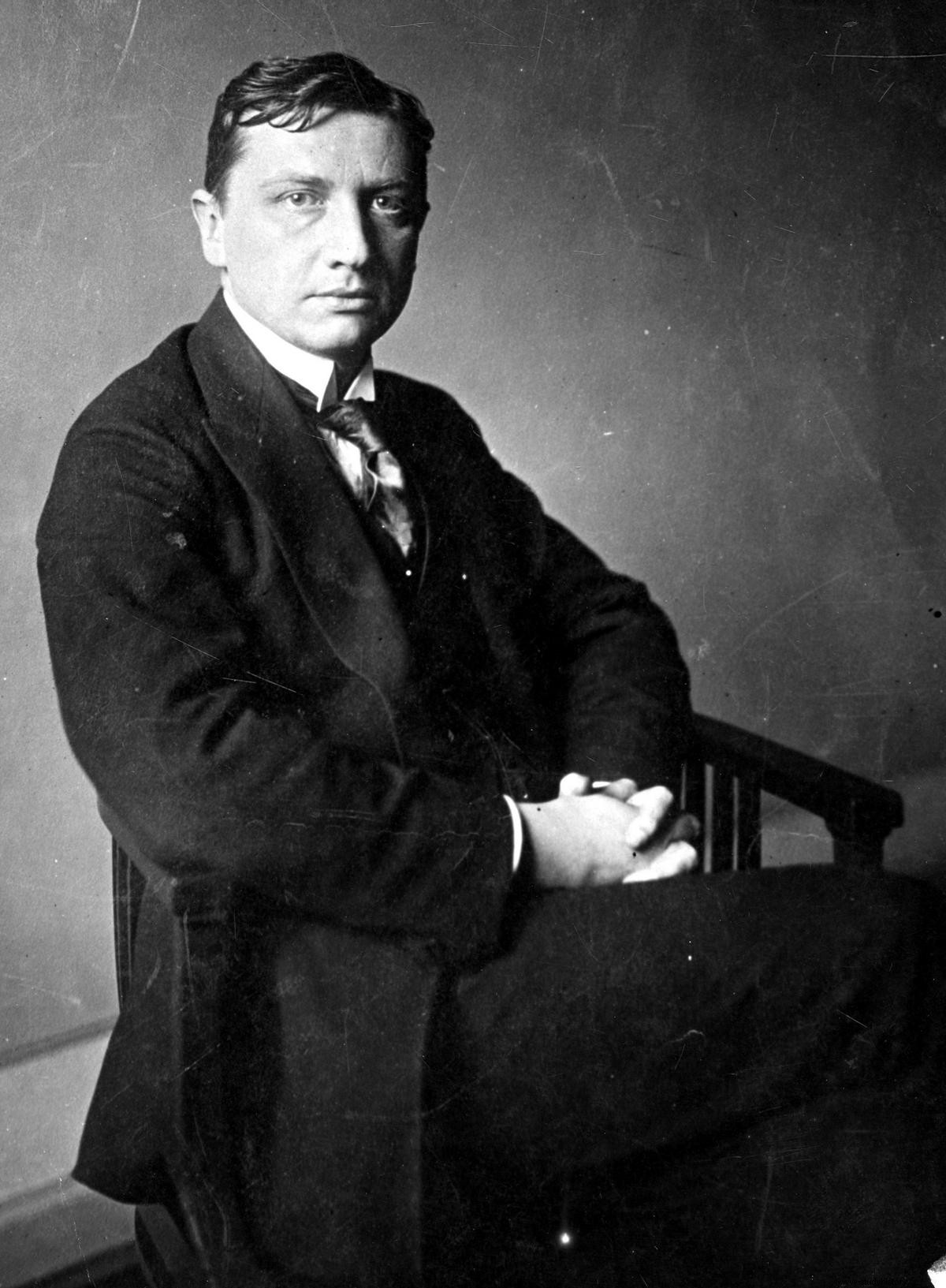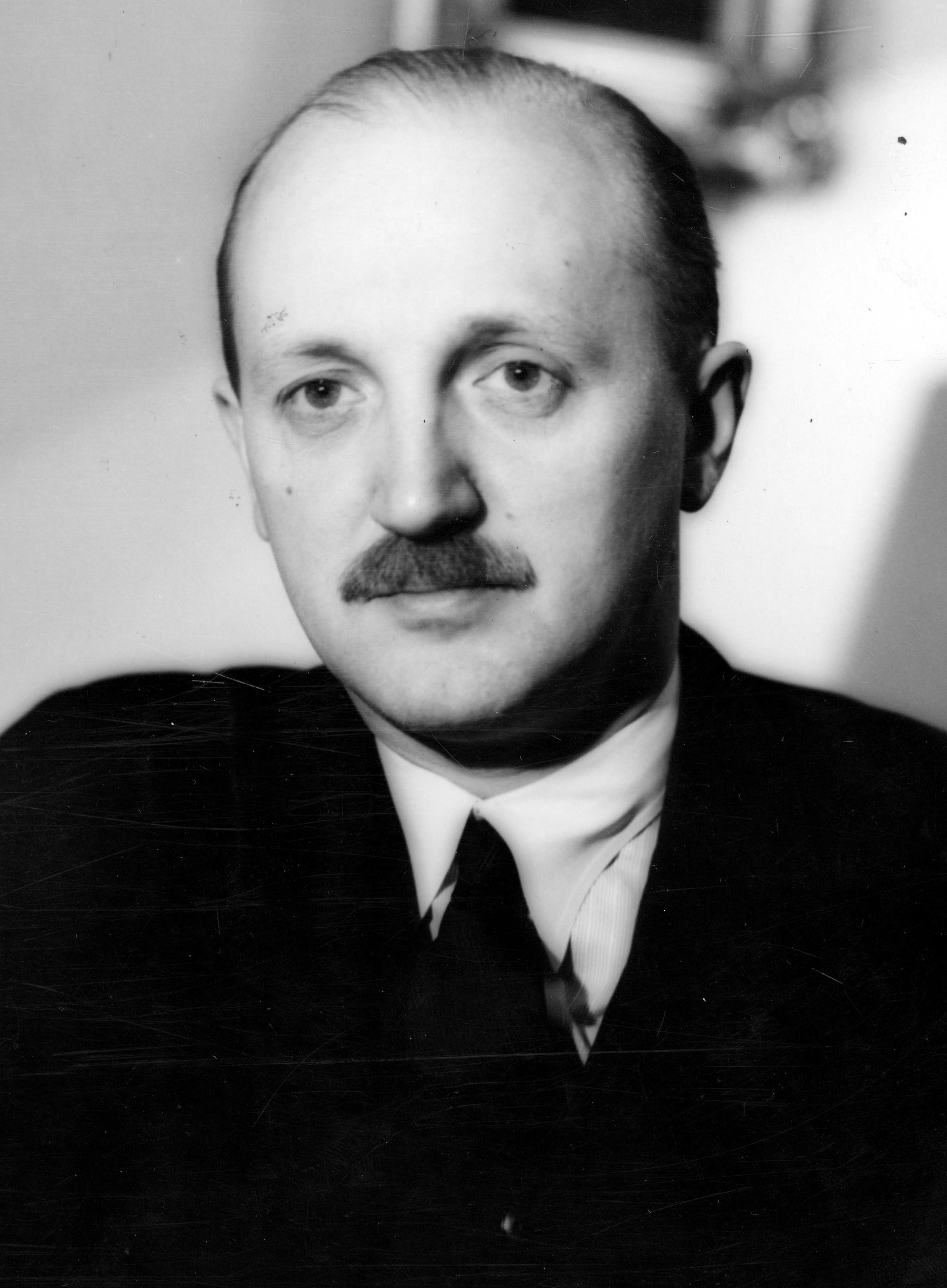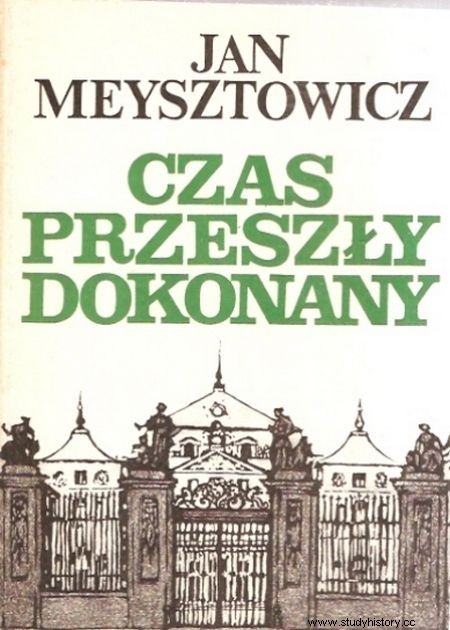It was involved in the highest circles of power in Poland. Hungry for adventures, with captivating beauty, full of sex appeal. She did not skimp on the charms of her body. Thanks to this, she stole the best kept secret of Polish intelligence.
Amy Elizabeth Thorpe was born in 1910 in Minneapolis, United States. Her father was an officer in the US Marine Corps, and because of that "Betty," as her parents affectionately called her, she changed places of residence frequently. During this time, she was also in Europe, where she learned languages and local customs.
Green-eyed beauty
At the age of 19, Betty made her debut in Washington's social scene. Distinguished, tall blonde with beautiful green eyes, attracted like a magnet the longing glances of men. She herself also had no problems with making new friends. At one of the receptions, she met Arthur Pack, a 38-year-old Undersecretary at the British Embassy.
She quickly landed in his bed. She became pregnant with him even faster, though some speculate that she was in a blessed state even before she met the British. They married when Betty was four months pregnant, but after the birth of their son in April 1930, the couple decided to give him up to foster care.

Elizabeth's father George C. Thorpe (standing fourth from left) was a Marine Corps officer, and therefore frequently changed residence. His daughter traveled with him.
Betty and Arthur were an exceptionally ill-matched couple. In addition to the age difference, there was also a difference in temperament. Elizabeth was a lively, energetic and passionate woman, while Arthur Pack was a stiff, emotionally inaccessible man. Betty quickly got bored of playing the role of a faithful wife in a career as a diplomat. She craved for adventure and emotions, which is why deceptions and betrayals appeared very quickly in their relationship. Pack's marriage began to fall apart and even the birth of a daughter in 1934 was unable to stop it.
A talented amateur
Just before the outbreak of the Spanish Civil War, Arthur Pack and his family found themselves in a diplomatic mission in Madrid. When the conflict grew hotter, his charming and clearly bored with the life of her husband so far, decided to take her first steps in the espionage profession.
At that time, she was acting only on her own account. With the help of a handsome Spaniard named Franco, she smuggled five nationalist fighters through Republican-controlled areas in a Red Cross humanitarian aid transport.
Later, Betty collected information useful for the British and coordinated the evacuation of British embassy employees from Spain. At that time, she carried out another spectacular operation. Using her feminine arguments, she seduced one of the loyalists and led to the release of 17 prisoners held in Valencia, supporters of General Franco. Betty also had a personal interest in it, as one of the inmates was her lover.

Betty began her espionage adventure during the Spanish Civil War. Pictured is Nationalist leader General Franco.
Unfortunately, Elizabeth Pack's espionage career in Spain collapsed after she was accused of spying for the Republicans. A woman reported this. Perhaps Betty inadvertently stepped into someone else's backyard.
Spies in Warsaw
In the fall of 1937, Arthur Pack received the post of commercial counselor at the British Embassy in Poland. He came to Warsaw with his wife, little daughter and her Spanish nanny. Betty Pack was already a full-time employee of the British intelligence service - Secret Intelligence Service. In Warsaw, Arhur Pack informed his wife that he loved another woman. Soon after, however, he suffered a stroke and left for the Isle of Wight, where he underwent rehabilitation. The wife remained in the capital of Poland. There, she carried out her espionage tasks and indulged herself in love.
At that time, Betty took part in many sumptuous receptions, organized for foreign diplomats, most often at the Raczyński Palace in Warsaw. Among exquisite dishes, in evening dresses and to the sounds of music by Bach, Mozart and Chopin, the then social cream of the Polish capital met with the foreign diplomatic corps - aristocrats, politicians, military, and people of culture. The atmosphere here was relaxed, the mood was exceptionally romantic, so it was not difficult to find an accidental love affair.

Edward Kulikowski had access to many secrets, which is why he was targeted by Elizabeth.
It was in these circumstances that Elizabeth Pack met Edward Kulikowski, a young Polish diplomat. Having access to many secrets of Polish diplomacy, the Pole quickly became a valuable source of information for her. He was rewarded with a well-deserved reward. As Betty admitted years later:“Our meetings have been very fruitful. I let him make love to me as often as he wanted, as long as he made sure he was the fluid source of the information I needed. "
In Her Majesty's Secret Service
Meanwhile, Betty caught a real "big fish" in the environment of Polish diplomats. At a party at the American ambassador Anthony J. Drexel Biddle met Count Michał Tomasz Łubieński. He was one of the most trusted collaborators of the head of the Polish Ministry of Foreign Affairs, Józef Beck. Łubieński was the director of the Minister's Cabinet and he proved to be "a man with a brilliant mind and lively disposition." Lubieński was so enchanted by the beautiful American woman that the next morning he sent her a bouquet of roses through his adjutant. The fact that Łubieński was married added spice to the whole affair.
It was from Łubieński that Betty learned about Polish work on cracking the code of the Enigma, a German encryption machine. Although Łubieński probably did not have full knowledge on this subject, the British learned about the achievements of Polish cryptanalysts. It happened about a year before, according to the official history, on June 24, 1939 in Pyry near Warsaw, representatives of Polish, French and British intelligence services met, where our cryptographers shared their knowledge about Enigma.

Another victim of the British agent's charm was the director of Beck's office, Michał Łubieński.
Although the information on this subject was extremely important, another fact was undoubtedly much more important for British intelligence. Thanks to the many talents of Elizbath Pack, it was possible to obtain a fully credible, though unaware, source of information located in the highest structures of Polish state power.
Mission aborted
In September 1938, Łubieński left with the Polish delegation to Prague. Betty Pack was with him. There, in collaboration with another British agent, Pack managed to obtain secret documents from the office of the prominent Nazi dignitary Konrad Henlein, later Gauleiter of the Sudeten Reich District.
Unexpectedly, however, the spy mission of Elizabeth Pack in Poland was interrupted. Łubieński's wife found out about her husband's affair and informed Beck about everything. A British agent was asked to discreetly leave our country. So in the fall of 1938 she left Warsaw. The Poles had no idea who Betty Pack really was.
"Cynthia"
The failure in Poland did not end Elizabeth Pack's espionage career. She later became involved in intelligence activities in North America. She became famous there, among others obtaining the secret codes of the Vichy embassy of France. As an agent of Cynthia, she initiated trysts with her press attaché Charles Brouss in the embassy building. For the sake of the cause, she even allowed herself to be caught by a security guard while having sex with her lover.

In one of the rooms, the dumbfounded watchman saw Pack completely naked, dressed only in high-heeled shoes and a string of pearls, and Brouss, also in "Adam's outfit", and withdrew greatly, confused. Thanks to this "mishap", Betty gained valuable time, which allowed her to photograph many of the secret Vichy documents that proved invaluable prior to the Allied landing in North Africa.
After the war, Elizabeth Pack married Charles Brouss, who left his wife for her. Her former husband, Arthur Pack, committed suicide in 1945. She herself died of cancer on December 1, 1963. As she admitted, she never regretted her actions and did not feel ashamed of anything. Indeed, she claimed:"my superiors told me that the results of my work saved thousands of British and American lives." And that was worth any price for her.
